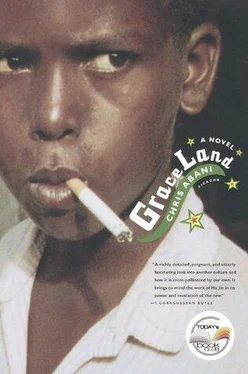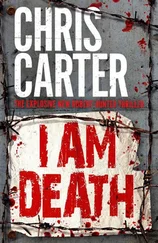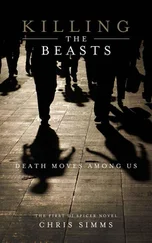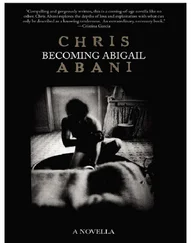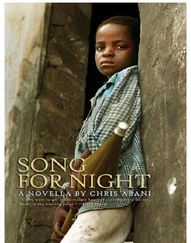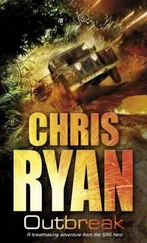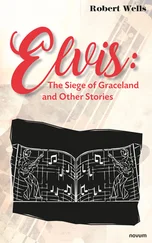“Vote Abrake for president!”
The voice from heaven startled everyone. Then a shower of small notes and coins fell from the hovering craft.
“Vote Abrake for president! What did I say?!” the disembodied heavenly voice repeated.
“Vote Abrake for president!” the crowd cheered in unison as they fought through the dust storm to retrieve coins and notes. There was much hair pulling, punching and swearing.
Even the personnel from the other party abandoned their duties to fight for the money. Then just as quickly as it had come, the helicopter rose and vanished, leaving behind dust-teared eyes, torn clothes and an arena swept clean by scrabbling fingers.
As he trudged home, pockets full of retrieved coins and sweets, a dusty T-shirt that announced OKONKWO FOR GOVERNOR clasped firmly in hand, Elvis smiled happily. His father, though contesting, was unable to afford much of a campaign team or gifts.
Elvis did not know why his father bothered. He was bound to lose with his intimate approach of house-to-house calls where he appealed passionately to kinsmen and women who listened patiently until he finished before asking: “Yes, Sunday, dat is all well and good, but are you offering as much money as de oder candidates?”
The forest fire had raged for days, and was still quite dangerous, threatening to spread to nearby homesteads. Elvis sat on the roof of the stillunfinished two-story house his father was building to replace their current bungalow. With Sunday’s resignation from his job to run for office, all construction had stopped on the new house, all the money diverted to his campaign. Elvis stared at the distant magnificence of the fire. These fires raged every Harmattan, set by farmers to clear the bush from land they intended to cultivate come the rains.
Traffic was backed up on the road running through the dense forest. Flammable cargo meant trouble. Petrol tankers often exploded like bombs, scattering debris everywhere, further fueling the fires, and he could see the police turning them away. The fire brigade truck was parked helplessly while the firemen lounged about watching the fire, some crouching by burning roadside twigs to light cigarettes. This fire was too big for them to fight; they only had one truck, and besides, it was common knowledge that their water supply had been cut off for days — something to do with a broken generator at the pumping station.
Updrafts, sparks and even volatile oils within some plants, like the oil bean tree, fanned the flames. The fire had cut them off from neighboring towns, as there was just one road in and out, so most of the campaigning had come to a halt, which for Elvis was a mixed blessing. It was a relief not to keep hearing the trucks and helicopters, but it also meant that his father and his new thugs hung close to the house.
Hezekiah was sitting next to Elvis, watching the fire. He had brought a couple of sodas and a bag of peanuts and was happily munching away as if he had never seen one of these fires before. Elvis turned to look at him. They weren’t really friends and had only spent time together on the smoking wall after the movies. Perhaps it had been a mistake to invite him over.
“Dis is a good time to hunt,” Hezekiah said.
“Why?”
“All de animals and reptiles are fleeing de fire. So just wait on de road and kill dem as dey come out. Easy.”
Elvis imagined antelopes and deer running straight into the roads to be hit by cars. Or the grass cutters, cousins of the rabbit, roasting as they ran and reaching safety well-done. He wondered if there were people down there by the fire, collecting ready-cooked game.
“Well, it gives a whole new meaning to fast food,” he replied, and they both laughed.
“Peanuts?” Hezekiah asked, passing the bag.
“Look,” Elvis replied, pointing.
Birds, on fire, tried to fly from the flames. Little sparrows and finches ricocheted like flaming Ping-Pong balls. Lovely white egrets flapped their wings of fire, hovering like phoenixes before crashing to be consumed in a whoosh of flame. Those that escaped one part of the forest only spread the fire to another.
“If dose things crash into a roof, dey can set de thatch on fire,” Hezekiah said.
“My father says that the only creatures who love forest fires are kites. He says they soar above the flames and ash, razor-sharp eyes hunting for prey, swooping down on confused creatures, snatching them up to some distant height where they can eat their catch in peace.”
“Aah.”
“My father says they are the politicians of the forest: the only ones to profit from everyone else’s loss and pain.”
“Ha, Elvis, dat your father is deep.”
They sat in silence for a long time, until darkness began to creep up on them and the Christmas lights began to come on in houses. For Elvis, there was nothing as comforting at night as the gentle winking of Christmas lights in some distant window.
“So, are you getting new clothes dis Christmas?” Hezekiah asked.
“With this election? Not likely.”
“But surely you people will be killing at least one or two goats.”
“I guess so, but with all these thugs and party supporters around, I doubt I will get to eat much.”
“Well, dere is an easy solution. You kill de goat. I’ll help you. You know de butchers always get a choice cut.”
“Why are you so eager to help? Aren’t you killing a goat?”
“No, we can only afford a chicken.”
“Chickens are easy enough to kill, certainly easier than rubbernecked turkeys. Or goats,” Elvis said.
“But as you know, de hardest thing about chickens is catching dem. Dey weave and bob like crazy, running in a straight line, den veering off to de right or left suddenly, sending everyone crashing into walls.”
Elvis laughed. He was very familiar with chasing chickens.
“So what do you say about de goat? Have you never killed one before?”
“No,” Elvis said.
“What of a chicken? At least tell me you have killed a chicken.”
“One,” Elvis said in a voice that betrayed the freshness of the memory. Having caught the chicken, he had grasped it firmly by its wings and laid it on its side, trapping both its legs and wings underfoot, all the while following the instructions Aunt Felicia was shouting at him. Lifting its neck tenderly, he plucked a few feathers to reveal its pulsing pink neck.
“Now comes de real test,” Aunt Felicia had said. “If your knife is sharp enough it will sink through de neck like butter, severing de head completely.”
But that chicken did not die easily. Even when they immersed it in a pan of scalding water to ease the plucking, headless and all it sprang up and sprinted off before beating itself into an acceptance of death on a tree stump.
“What is it?”
Elvis told Hezekiah about his chicken.
“Don’t feel so bad — if dey could, chickens would kill us. Dat’s de way it is.”
“Have you killed a goat before?”
“Many,” Hezekiah said.
“Are they easy to kill?”
“No. Goats are a different matter. Dey have eyes dat watch you, not letting you get away with anything. And dat bleat, so childlike. It’s not easy. But den being a man is not, abi?”
“I don’t want to kill anything.”
“Sometimes we have no choice.”
FRIED YAM, PLANTAIN AND BEEF STEW
(Igbo: Ji Egerege, Unine Ya Stew)
INGREDIENTS
Yam
Plantains
Vegetable oil
Cubed beef
Diced onions
Curry powder
Fresh bonnet peppers
Salt
A tin of chopped tomatoes
Sugar
PREPARATION
First, peel the yam and plantains and slice them into thin slivers. Next, wash yam and plantain slivers and pat dry with paper towel. Put two dessert spoons of oil into a frying pan and bring it to heat, and then add the yam and plantain slivers. Fry until crisp. Leave to drain on a large plate with a paper towel.
Читать дальше
